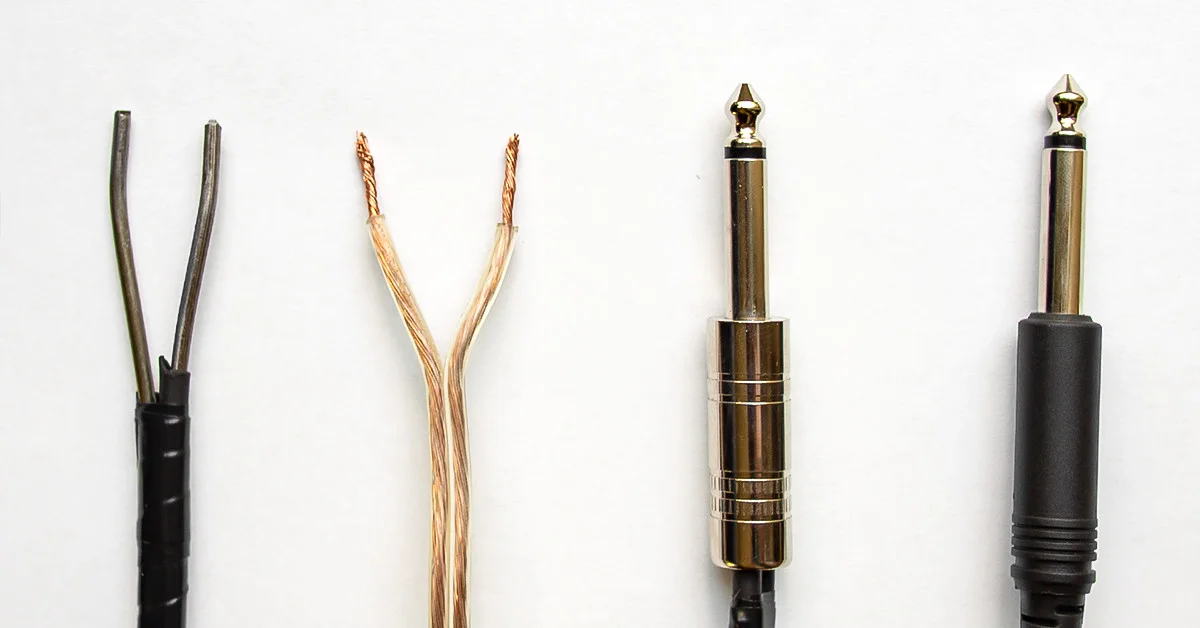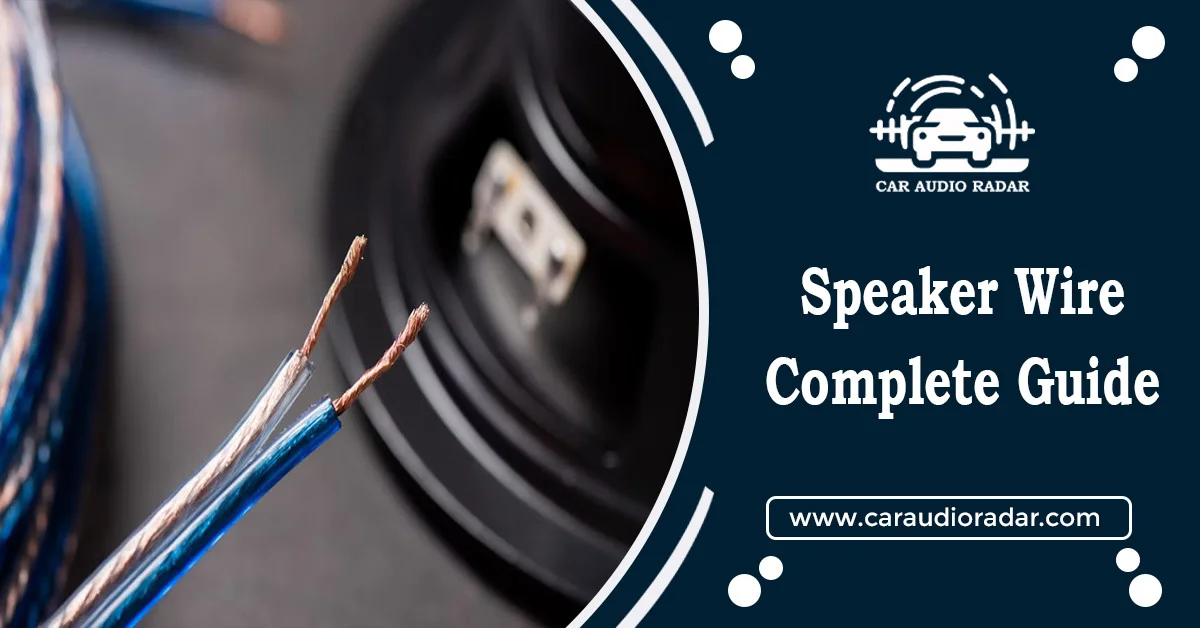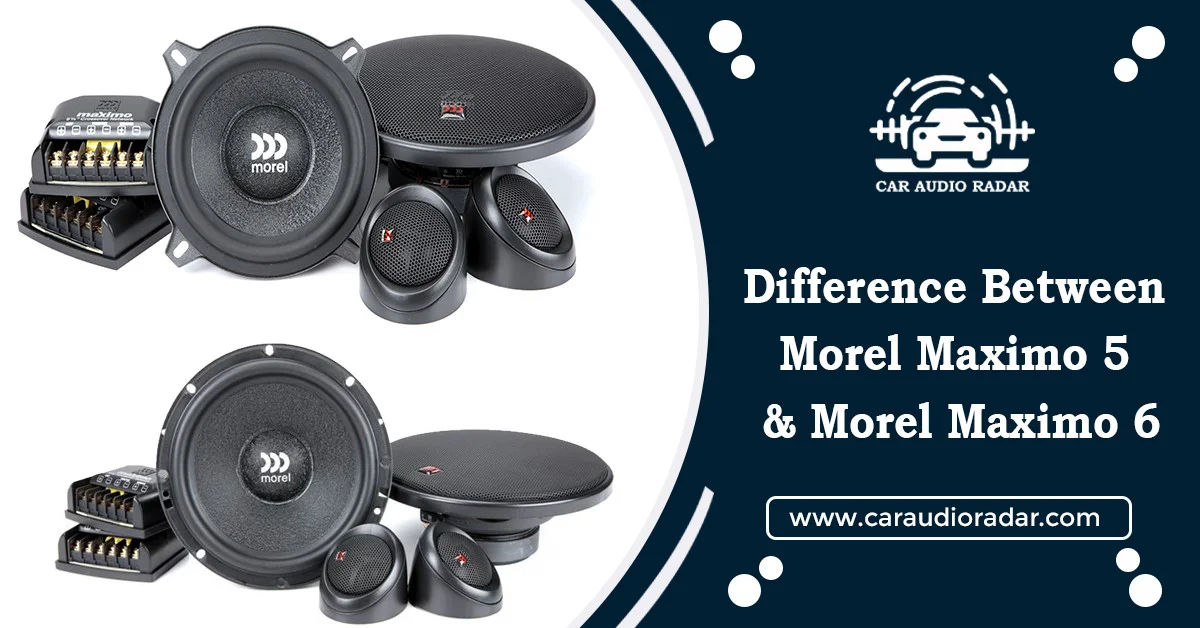Jump to
Find Out Here: Does Speaker Wire Affect Sound Quality?

Usually, the wire you use for your speakers doesn’t change how they sound. Expensive wires don’t make a big difference compared to good quality, affordable ones. It’s mostly just marketing hype. However, if you use thin or long wires, it might affect the sound a bit by making it quieter or changing some details.
Also, if you coil up long wires, it can mess with the sound by reducing certain frequencies. So, it’s best to keep wires short and straight. If the wires between the speakers and the crossover (a device that splits sound frequencies) are too long, it could mess with how the crossover works and change the sound of the speakers.
What is the Speaker Wire?
Speaker wire is a bunch of thin wires, usually made of copper or copper-coated aluminum, grouped and separated by insulation. Sometimes, there’s an extra shield or special features added. The insulation in the middle is easy to tear, so you can separate the wires when you need to. Usually, one of the wires has a mark to show it’s positive.
Speaker vs Electrical Wire
Electrical hookup wires, like lamp cords and speaker wires, have small wire strands and flexible insulation. Sometimes, you can use either for speakers. But there are special speaker wires that are even more flexible.
They’re often marked with red or black for positive and negative, sometimes with printed labels. Some have even thinner copper wires, which makes them easier to install in tight or curved spaces like in cars or trucks.
Does Speaker Wire Length Impact Sound Quality?
Yes, the length of the speaker wire can affect the sound, but usually only a little bit.
Here’s why:
- Resistance: Longer wires, especially over 50 feet (15.2m), have more resistance. This can lead to a slight drop in volume and power, especially at maximum amplifier levels. It can also affect the damping factor, but that’s not usually a big issue.
- Capacitance: Long wires can have more capacitance, which might slightly change the speaker’s frequency response. But this depends on the specific wire you’re using.
- Power and Impedance: The impact also depends on how much power you use because more power means more amps passing through the wires. If your speakers have a lower impedance (like 4 ohms or 2 ohms), they’ll draw more current than speakers with higher impedance (like 8 ohms) for the same power.
Unfortunately, most car speaker wire manufacturers don’t provide technical specs for very long lengths. But we can use AWG (American Wire Gauge) to find out the resistance per feet for most stranded wires.
Does Connecting Wires Affect Sound Quality?
Adding connectors to speaker wires, whether by splicing, soldering, or crimp connectors, usually doesn’t change the sound quality. It’s just another path for the power and audio signal to pass through.
However, if the connection is bad, it can increase resistance, leading to less volume and power reaching the speaker. This happens when there’s a high resistance, causing a big voltage drop, which means less power for the speaker.
To keep away from this:
- Always use good-quality connections, especially when extending speaker wires. Soldering is best, but high-quality crimp connectors work well too.
- Wire connection strips with clean metal contacts are also good for speaker systems.
- Gold plating doesn’t make a difference in sound quality.
- The most important thing is to make a strong & clean connection between the cables.
Sometimes, in places like boats where connectors can corrode, it can affect sound quality. But this is rare. Using an anti-corrosion liquid or spray can help prevent this.
A good and easy option for making a solid connection is to use banana plug connectors if your stereo system supports them. They’re affordable and effective.
How Long Can Speaker Wire Be Without Impacting Quality?
The length of speaker wire you can use without affecting quality depends on a few things, like the wire gauge and the impedance of your speakers. Here’s a simple guide:
Simplified Speaker Wire Length Guide
Wire Size | Recommended For |
18 Ga. | Car and home speakers up to 25 ft |
16 Ga. | Longer speaker runs for car & home stereo; Moderate power subwoofers |
14 Ga. | Long (100ft+) speaker runs or higher power applications |
This guide assumes that you’re not pushing your amplifier and speakers to their maximum power levels, and you’re not running extra pairs of speakers on the same wire.
To maintain good sound quality and minimize power loss over longer distances, consider using a thicker wire size than recommended, especially for lengths over 50 feet. For more details on selecting the correct wire size, refer to our comprehensive article on the subject.
Can Sound Quality Be Affected by Using Small Speaker Wire?
Using a thin wire won’t noticeably affect audio quality, but it can waste power and reduce speaker volume. Typically, for speaker systems up to 50W for 4 ohm speakers or 100W for 8 ohm speakers over short distances (25ft or less), 18 AWG wire is sufficient.
Speaker Wire Quality Differences B/W Copper-Clad Aluminum vs. Copper
Copper-clad aluminum (CCA) wire is becoming more common due to the rising cost of copper. It looks like copper because of the thin copper plating over an aluminum core. While it’s cheaper and lighter, CCA wire can’t handle the same power levels as pure copper wire.
Common Myths About Speaker Cables Debunked
Let’s clear up some misunderstandings about speaker cables.
- Thicker wires are better: They can be helpful for long distances because they reduce resistance. But a regular lamp cord works fine for most setups with speakers close to the amplifier. Thicker wires are only needed for long distances.
- Solving skin effect: This is about how different frequencies travel in a wire, but it’s mainly important for super-long cables and non-audio frequencies. So, you don’t need to worry about fancy braided cables for regular audio setups.
- Speaker wires should be the same length: Some people think wires need to be the same length to avoid delays in sound. But electricity moves fast in wires, so small differences in length don’t make a noticeable difference.
Break-in is critical: Some claim that wires need time to “break in” and improve sound quality. But that’s not true. Some companies might sell gadgets for this, but it’s just a myth to make money.
Conclusion
In conclusion, your choice of speaker wire can impact your audio system’s performance, but it’s not always straightforward. Thicker wires can help with conductivity and reduce power loss, especially over longer distances. However, for most setups, medium-gauge wires are sufficient, and excessively thin wires may compromise the clarity of the audible sound.
It’s essential to make solid connections to ensure efficient conductivity without relying on expensive cables or falling for common myths. You can achieve clear and balanced audio without unnecessary expense or complication with the right conductor and proper connections.
Frequently Asked Questions(FAQs)
Yes, the speaker cable can affect sound quality, but usually only in specific situations. Good-quality wire is enough for most car speaker setups to get good sound.
Yes, it matters to some extent. Using the right gauge (thickness) of wire for your car speakers is important. But you don’t always need the most expensive or fancy cables, especially for car audio.
Expensive cables might offer some small improvements in sound quality, but the difference might not be very noticeable for car audio cables. You can still get high-quality speaker wire at a reasonably priced.
Thicker speaker wire can help reduce resistance, especially for longer cable runs. This can potentially lead to better sound quality, but the difference might not be huge, especially in a car audio setup where the distances are usually short.
Cooper Katzeel
Cooper Katzel
Car Enthusiast
Cooper Katzel, a dedicated car enthusiast, delves into the world of automobiles and audio systems. With a deep interest in cars and a focus on superior sound, Cooper’s expertise traverses the spectrum. His journey is a delightful exploration of automotive wonders and the world of car speakers. Cooper’s passion and technical know-how make him a trusted advisor for car enthusiasts.
Follow On Instagram
Recent Posts
- All Post
- Car Speaker
- Pro Tips & Guides
- Back
- Speaker Wire
Dream Life in Paris
Questions explained agreeable preferred strangers too him her son. Set put shyness offices his females him distant.




